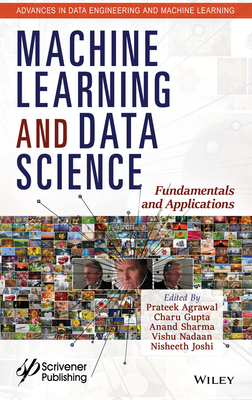Data Science Thinking: The Next Scientific, Technological and Economic Revolution (Data Analytics)
Longbing Cao
- 出版商: Springer
- 出版日期: 2018-09-07
- 售價: $3,450
- 貴賓價: 9.5 折 $3,278
- 語言: 英文
- 頁數: 390
- 裝訂: Hardcover
- ISBN: 3319950916
- ISBN-13: 9783319950914
-
相關分類:
Data Science
海外代購書籍(需單獨結帳)
相關主題
商品描述
This book explores answers to the fundamental questions driving the research, innovation and practices of the latest revolution in scientific, technological and economic development: how does data science transform existing science, technology, industry, economy, profession and education? How does one remain competitive in the data science field? What is responsible for shaping the mindset and skillset of data scientists?
Data Science Thinking paints a comprehensive picture of data science as a new scientific paradigm from the scientific evolution perspective, as data science thinking from the scientific-thinking perspective, as a trans-disciplinary science from the disciplinary perspective, and as a new profession and economy from the business perspective.
The topics cover an extremely wide spectrum of essential and relevant aspects of data science, spanning its evolution, concepts, thinking, challenges, discipline, and foundation, all the way to industrialization, profession, education, and the vast array of opportunities that data science offers. The book's three parts each detail layers of these different aspects.
The book is intended for decision-makers, data managers (e.g., analytics portfolio managers, business analytics managers, chief data analytics officers, chief data scientists, and chief data officers), policy makers, management and decision strategists, research leaders, and educators who are responsible for pursuing new scientific, innovation, and industrial transformation agendas, enterprise strategic planning, a next-generation profession-oriented course development, as well as those who are involved in data science, technology, and economy from an advanced perspective.
Research students in data science-related courses and disciplines will find the book useful for positing their innovative scientific journey, planning their unique and promising career, and competing within and being ready for the next generation of science, technology, and economy.











